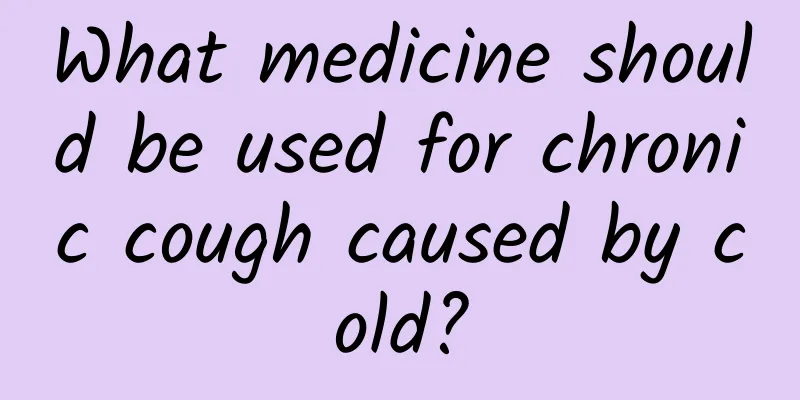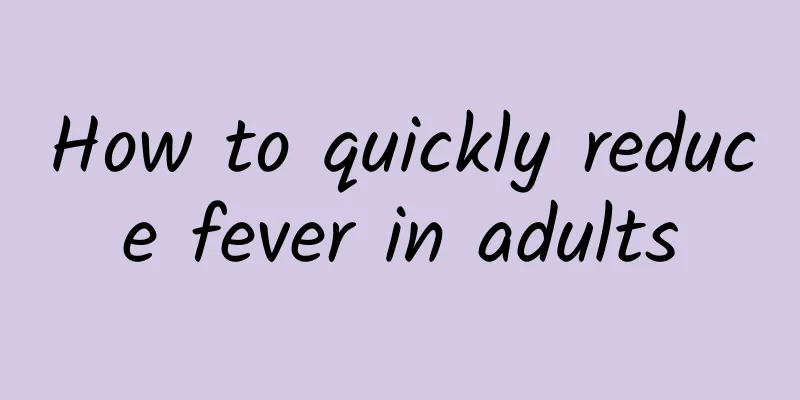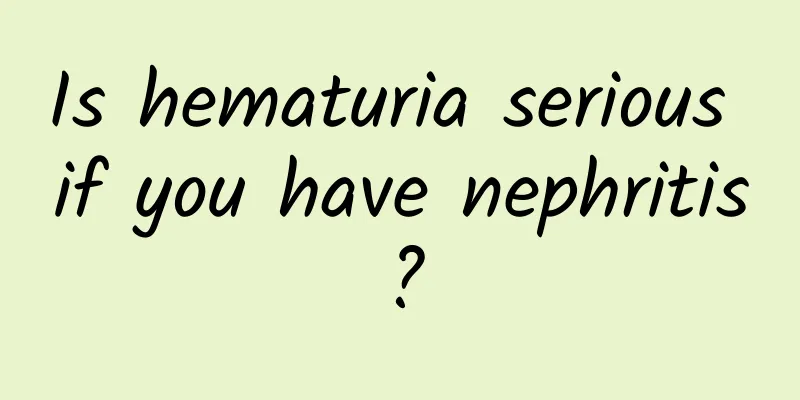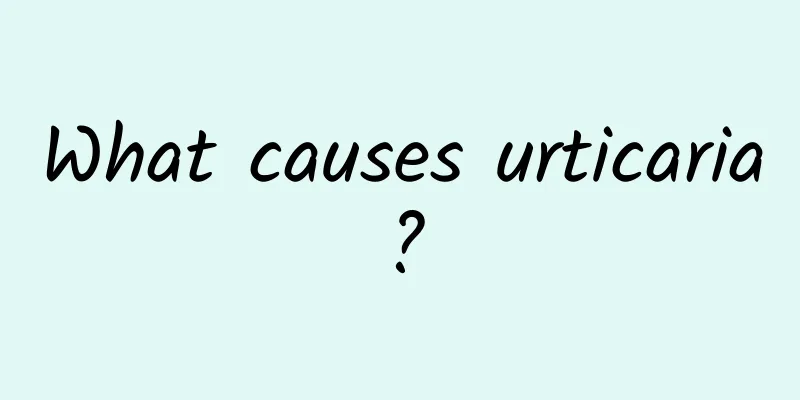What medicine should be used for chronic cough caused by cold?

|
Generally, cough caused by cold will be accompanied by symptoms such as thin sputum, clear runny nose, nasal congestion, itchy throat and heavy sound, and will also be accompanied by body pain, feeling very cold but not sweating. The most commonly used medicines are almonds, perilla leaves, pinellia, tangerine peel, peucedanum, etc. If it is not too serious, it is best to choose diet therapy. Commonly used drugs Apricot kernel, perilla leaf, peucedanum chinense, schizonepeta tenuifolia, pinellia tuber, tangerine peel, platycodon grandiflorum, and fructus aurantii. If there is severe aversion to cold, add ephedra and saposhnikovia divaricata to dispel the cold; if there is headache and body pain, add cinnamon bark and white atractylodes to warm the meridians, dispel the cold and relieve pain; if there is cough with a lot of sputum, add asarum, thorn apple and radish seed to warm the lungs, resolve phlegm and reduce adverse effects; if cold evil is bound externally and heat is trapped inside, accompanied by fever, thirst, flushed face and irritability, add daqingye and scutellaria to clear the trapped heat. Traditional Chinese Medicine Nursing 1. Observe the duration, nature, volume of cough, presence of sputum, breathing conditions during coughing, and accompanying systemic symptoms. 2. Observe the amount of sputum coughed up, the time when the most sputum is coughed up, the nature and color of the sputum, the ease or difficulty of coughing up the sputum, and whether it contains blood. 3. Collect sputum specimens promptly for testing. 4. Patients with cough need clean and fresh air the most. Windows in the ward should be opened frequently for ventilation. Smoking is prohibited indoors to prevent the irritation of smoke and special odors. 5. Wear a mask when going out to avoid invasion by external evils. Keep warm and quit smoking and drinking. 6. Prepare a sputum cup with scales, and clean up sputum and disinfect the sputum cup in time. 7. Those who are weak or have difficulty in coughing up sputum need assistance in expectoration, by turning over and patting their backs regularly, and using postural drainage to expel sputum. Suction sputum if necessary. 8. If the sputum is thick and difficult to cough up, ultrasonic atomization can be used to thin the sputum and facilitate its discharge. 9. People with cough and phlegm should not use narcotic cough suppressants. Instead, they can be given expectorants and cough suppressants, anti-inflammatory and expectorant drugs. The cough will stop when the phlegm is removed and the inflammation is eliminated. 10. Acupuncture to relieve cough: acupuncture the Feishu, Lieque, Tiantu and Fenglong points. Or use ear acupuncture on the bronchial, lung, and Shenmen points; add the adrenal point for exogenous cough; add the spleen, kidney, and other points for internal injury cough. 11. When the cough is severe, you can temporarily take 10 ml of cough mixture, or compound licorice mixture, or Tongxuan Lifei Pills. Avoid taking pear paste, steamed juice with rock sugar or steamed pear juice with rock sugar, so as to avoid moisturizing too early and the evil cannot be expelled. 12. Avoid eating raw and cold fruits and fatty and greasy foods. Food Foods to Avoid: Anyone with a cough should avoid certain foods based on different types of cough according to TCM theory. People with cold and cough should avoid eating these foods. Persimmon is very cold in nature and should be avoided. The Compendium of Materia Medica states: "If there is no fire in the lung meridian, it should be avoided if the patient has a cough caused by wind and cold." The Suixiju Diet also states: "If the patient has deficiency of qi and cold in the middle, excessive phlegm and dampness in the body, or wind and cold in the outside... it should be avoided." Although lily is neutral in nature, according to previous experience, people with cold and cough should still avoid eating it. Wang Shixiong, a doctor in the Qing Dynasty, once said: "People with wind-cold, phlegm and cough should not eat it." "Compendium of Materia Medica" also pointed out: "It is especially forbidden to eat it for cough caused by external wind-cold and stagnation of lung qi." Mint is cool in nature and sweet and spicy in taste. It is suitable for people with wind-heat cough. However, it should be avoided for people with wind-cold colds and coughs with cold phlegm (including chronic bronchitis with clear, thin, white phlegm and foam). Just as it is said in Ben Jing Feng Yuan: "Taking it too much and for a long time will make you feel weak and cold." Ben Cao Jing Shu also says: "If the cough is caused by the cold invasion of the lungs but there is no fever, do not take it." Bananas are cold in nature and sweet in taste, and are considered a very cool fruit. People with wind-cold type coughs should eat spicy and warm foods, so they should avoid eating bananas, which are very cold foods. Plums taste sweet and sour, and the sourness has astringent properties. "Sui Xi Ju Diet" also said: "Eating too much will produce phlegm." Therefore, people who have wind-cold type cough, whose cold evil has not been eliminated, and who have white phlegm should avoid eating this food. Black plum tastes sour. People with acute cough, unresolved external pathogens, and cough with a lot of sputum should avoid eating it. Because black plums are sour and astringent to the lungs, eating them will make it difficult to cure a cough. The "Pharmaceutical Chemistry" says: "When a cough first occurs, the patient has shortness of breath and feels stuffy in the chest and diaphragm. One should avoid taking acid to restrain the evil spirits." Pomegranate tastes sour, so people with cough caused by cold should avoid eating it. Because it is sour and astringent and can astringe the lungs, eating it will cause the lung qi to be blocked and the cough to become worse. "Daily Materia Medica" says: "The juice stays in the diaphragm and turns into phlegm, which damages the lung qi. Patients should avoid eating it." "Medical Collection" also says: "Eating too much will cause phlegm." Therefore, anyone with a wind-cold cough and a lot of phlegm that is difficult to cough up should avoid eating it. Ringo is commonly known as Huahong, and has a sour nature and taste. "Ben Jing Feng Yuan" said: "Patients who like to eat this often suffer a relapse, or produce phlegm and cause cough and retching, which is caused by airway obstruction." Those who have a cough caused by wind-cold and have a lot of white and sticky phlegm will make the cough worse by eating this, so they must avoid it. Oranges are cool in nature and taste sweet and sour. "Bencao Shiyi" believes that oranges are "cold" in nature. Although they can quench thirst and moisten the lungs, people with cold and cough should avoid eating them. The Chinese Medicine Dictionary also clearly warns: "People with cold, cough, or phlegm should not eat it." Pears are cool fruits and are suitable for people with wind-heat coughs, but should not be eaten by people with wind-cold coughs. "Bencao Tongxuan" said: "The raw one can clear the heat of the six internal organs." "Bencao Jingshu" has long warned: "Cough caused by lung cold, cold phlegm and fluid,... avoid eating salty food." Therefore, people who have a cough with a lot of white phlegm in the early stage of a cold should avoid eating it. Clam meat is cold in nature, sweet and salty in taste, and is a very cooling food. It is said in "Bencao Yanyi": "Eating too much will cause wind and cold." It is also said in "Sui Xi Ju Diet": "Eating too much will cause cold, and those who have not yet cleared up the external cold and have spleen deficiency and slippery stools should avoid eating this food." People with wind-cold type cough, those with external cold that has not been relieved, and those with white sputum should avoid eating this food. Clam meat is sweet and cold in nature, and is a very cooling food. "Bencao Shiyi" points out: "Eating too much can cause cough and cold." Therefore, people who suffer from cold cough, cough with a lot of phlegm, and white phlegm with foam should avoid eating this food. Crabs are salty and cold in nature, and are very cooling food. It is pointed out in Sui Xi Ju Diet: "People with weak qi and cold in the middle, feeling uncomfortable from time to time, cough with phlegm and diarrhea should avoid eating this food." People with wind-cold type cough, external evil not yet resolved, and those with a lot of white phlegm in the cough should avoid eating this food. Gecko is salty in nature and can nourish the lungs and kidneys, relieve asthma and cough. It is only suitable for people with weak coughs, and should not be eaten by people with coughs caused by exogenous wind and cold. The "Compendium of Materia Medica" warned: "It is not suitable for cough caused by wind and cold." The "Depei Materia Medica" also said: "Yin deficiency and fire movement, wind evil and cough, both of which are forbidden." In addition, you should avoid eating sour and cool foods such as grapes, oranges, kiwis, mangoes, papayas, loquats, persimmons, monk fruit, raw radishes, raw sweet potatoes, watermelons, raw cucumbers, raw water chestnuts, mint, honeysuckle, chrysanthemums, etc. You should also avoid eating sticky and greasy glutinous rice, longan meat, jujubes, white fungus, honey, etc. Cold cough pills Ginger, garlic and brown sugar soup: 5 slices of ginger, 12 grams of brown sugar, 3 slices of garlic. Add water and cook for 10 minutes, then drink the soup. Effect: Warming the lungs and relieving cough. Ginger, sugar and tofu soup: 200 grams of tofu, 50 grams of brown sugar, 3 slices of ginger, add a little water and cook. Effect: Nourishes the spleen and warms the lungs. What should children eat when they have a cold and cough? 1. Roasted oranges Roast the oranges directly over low heat, turning them constantly, until the peels turn black and steam comes out of the oranges. Wait for the orange to cool down a bit, peel the peel and let your child eat the warm orange segments. If it is a big orange, the child can eat 2 to 3 slices at a time. If it is a small tribute orange, the child can eat one at a time. It is best to take it with garlic water, 2 to 3 times a day. Oranges are warm in nature and have the effect of resolving phlegm and relieving cough. After eating roasted oranges, the amount of sputum will be significantly reduced, the antitussive effect is very obvious, and children are willing to eat it. 2. Scrambled eggs with sesame oil and minced ginger Put a small spoonful of sesame oil into the wok, add the minced ginger when the oil is hot, fry it in the oil for a while, then beat in an egg and stir well. When children have a cough due to cold or physical weakness, let them eat this medicine once every night while it is hot before going to bed. If you persist in eating this medicine for a few days, you will see obvious results. 3. Ginger + brown sugar + garlic If a child has a cold, drinking warm ginger and brown sugar water can be a good therapeutic treatment. If the child also has a cough, add 2 to 3 cloves of garlic to the ginger and brown sugar water and cook together. Cook over low heat for 10 minutes to remove the spiciness of the garlic. Only then will the child be willing to drink it. 4. Steamed Garlic Water Take 2 to 3 cloves of garlic, smash them, put them in a bowl, add half a bowl of water, put in a piece of rock sugar, cover the bowl and put it in the pot to steam. After boiling over high heat, switch to low heat and steam for 15 minutes. When the garlic water in the bowl is warm, feed it to your child. The garlic does not need to be eaten. Generally 2 to 3 times a day, half a bowl each time. Garlic is warm in nature and enters the spleen, stomach and lung meridians. It is very effective in treating cold coughs and kidney deficiency coughs. It is also convenient and simple, and children are willing to drink it. 5. Pear + Sichuan pepper + rock sugar Wash a pear, cut it in half horizontally and remove the core. Add 20 peppercorns and 2 crystal sugars. Put the pear halves in a bowl and steam it for about half an hour. One pear can be eaten in two times. Steamed pears with pepper and rock sugar are very effective in treating cold and cough, but some children don’t like the taste of pepper, so parents can choose for themselves. |
<<: Does green vaginal discharge mean inflammation?
>>: What topical medication should be used for paronychia?
Recommend
What are the common symptoms of acute pharyngitis?
Pharyngitis is a relatively common throat disease...
How much do you know about the secret of health and longevity?
1. Replenish water Have you found that your memor...
What to do when your brain is tense
When people encounter some unexpected situations,...
Is it normal to have a creaking sound in the cervical spine?
Try not to maintain a posture for a long time, as...
The efficacy and function of ylang-ylang essential oil
When watching many palace fighting dramas, ylang ...
Symptoms of bone tuberculosis
With the continuous improvement of modernization,...
The fastest massage technique for hangover
Massage is a therapeutic method in traditional Ch...
Treatment methods for facial paralysis, old Chinese medicine recommends several treatment methods
When we evaluate an actor's acting skills, we...
Level of mental disorder
Mental disorders are quite harmful to patients, m...
How to quickly reduce menstrual flow
Menstruation is a sign of female maturity and has...
What are the functions and effects of cooked Codonopsis pilosula?
Codonopsis has many aliases. As a medicinal mater...
Can ground vegetables be eaten?
Ground lettuce is a very rare existence in nature...
White fluid in urethra in the morning
The urethral opening belongs to the lower body of...
What are the symptoms of water breaking in late pregnancy
If water breaks in the late pregnancy, it means t...
8 Vitality Foods to Solve Your Spleen Dampness, Puffiness and Lack of Sleep
Excessive dampness is a very common health proble...









